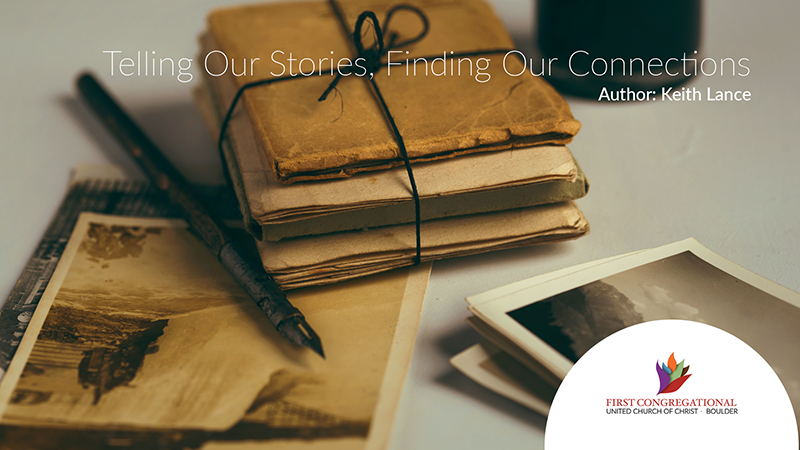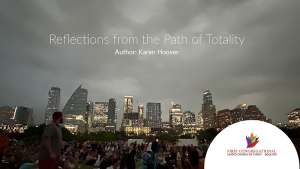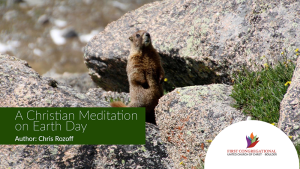You can listen to this week’s Devotional here
Author: Keith Lance
For several years, we have had a memoir writing group that meets on Wednesday afternoons to share personal writings about our lives, particularly the people, events, and experiences that have most influenced us—usually beginning with our families of origin. For many, these writings aim to culminate in a memoir, a legacy to be left for family and friends by the author. Listening to other group members is always fascinating, as it heightens our awareness and appreciation of our differences as well as our similarities.
In recent years, several First Cong members have learned that we share an allied interest in genealogy. When most of us think of genealogy, we tend to think of it as the barest bones of our family stories—names, places, and dates of birth, marriage, and death. But, in everyone’s family tree, there are individuals who stand out, because of the uniqueness and richness of their personal experiences—how they responded to the personal challenges they faced and to the time and culture in which they lived. And those stories are usually documented in the process of developing a family tree.
Historically, genealogy was a topic of interest only to the rich and powerful, because of inheritance and historical prominence. But, over the last half century, it has become more democratized, as online access to public records and other sources has made it possible for practically everyone to learn more about the history of their families than ever before. And, in addition to those paper trails, there is the additional resource of DNA testing and matching.
Through such means, the genealogists among us have been delighted to discover distant and hitherto unknown kinships among members of our congregation, some of which connect back to the roots of Congregationalism.
Your story and the story of your family are part of our story as a congregation. And that is true whether you are descended from one of the early Congregationalists, or whether you found your way to this UCC congregation from another denominational tradition, another religion, or even a tradition of no religion.
If you would like to share your genealogical research with others or want help beginning such research and learning how it dovetails with the research of others, we can put you in touch with those in our congregation who share your interest. Perhaps there will be enough of us to form a small group.
Why do the Gospels of Matthew and Luke include genealogies of Jesus? They are a shorthand way of placing him in the context of Jewish history and prophecy.
Holy God, encourage us to appreciate our stories as individuals, families, and a congregation by learning and understanding whatever we can of those who came before us and how their stories have influenced our own.
Keith Lance
keithlance@comcast.net



